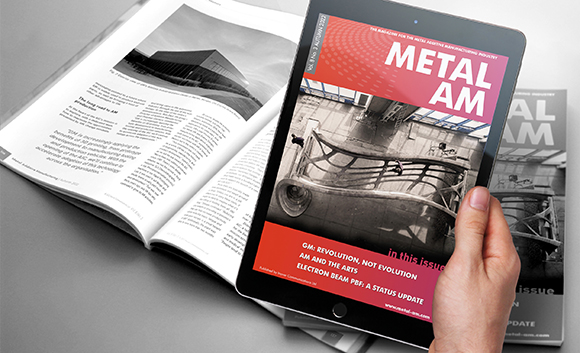Dyndrite and partners collaborate on high-resolution geometry adapted process control
November 16, 2022
Dyndrite, headquartered in Seattle, Washington, USA, has announced a collaboration with Scanlab GmbH, Puchheim, Germany, and the Fraunhofer Institute for Laser Technology (ILT), Aachen, Germany, to utilise the Dyndrite Engine and Toolpath API to prepare high-resolution data for Scanlab-based Laser Beam Powder Bed Fusion (PBF-LB) Additive Manufacturing machines.
“Scanlab’s scan systems are on the receiving end of the data chain. They execute the laser beam steering commanded by the machine’s software. However, today’s [PBF-LB] machines do not provide the high-resolution data that our hardware control is capable of executing,” stated Daniel Reitemeyer, Scanlab GmbH. “Dyndrite has the ability to calculate process parameters at extremely high resolutions that can drive our laser control system to its fullest.”
Harshil Goel, CEO, Dyndrite, added, “Our goal is to produce software that exceeds the demands of today’s hardware, and provides a springboard for the next generation. Scanlab hardware has more capabilities than many manufacturers are currently using. Our joint effort aims to unlock what’s possible, from both ends of the problem, marrying software that is finally capable of unleashing the power of Scanlab lasers.”
Dyndrite is the developer of the GPU-Powered Accelerated Computation Engine (ACE) and associated Application Developer Kit (ADK). The combined solution enables hardware and software developers to create next-generation Additive Manufacturing solutions. It provides direct support for a number of industrial AM processes, including Binder Jetting (BJT), Vat photopolymerisation and PBF-LB. Additionally, it utilises 3D volumetric segmentation, a capability that enables users to assign process parameters based on the volumetric analysis of the 3D part in an effort to open the door to new part types, build strategies and material properties.
“If you look closely, [PBF-LB] processing has not developed significantly in the last fifteen years. However, the requirements of the users have – especially with regard to series applications. For this reason, we at Fraunhofer ILT are working on new approaches to adaptive process control in order to increase process robustness, part quality and productivity,” Dr Tobias Pichler, Fraunhofer ILT, explained. “The cooperation with Dyndrite and Scanlab is the perfect pairing for us to make our adaptive [PBF-LB] process control, which has so far only been implemented at laboratory level, available for industrial applications.”
The researchers at Fraunhofer ILT will use their process knowledge in machine software design to demonstrate the use cases and applications of the Dyndrite/Scanlab integration. It is expected that the resulting work will yield better part quality, with less distortion and targeted mechanical properties for Laser Beam Powder Bed Fusion.
Those interested in learning more can visit all three organisations at Formnext: Dyndrite, Hall 11, C61; Scanlab, 12.0, 12; and Fraunhofer ILT, 11, D51.
















